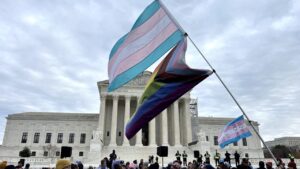Georgia Implements New Law Affecting Trans-Identified Athletes
In a significant move reflecting broader national trends, Georgia has enacted legislation that restricts trans-identified males from participating in women’s sports. This development aligns with President Donald Trump’s efforts to ensure what he describes as fairness for female athletes.

The legislation, known as Senate Bill 1 or the “Riley Gaines Act of 2025,” was signed into law by Governor Brian Kemp earlier this week. The bill passed through Georgia’s state Senate with a 35-17 vote and the House with a 100-64 vote. The voting largely followed party lines but saw a few Democrats breaking ranks to support the bill.
The bill stipulates that males cannot participate in female-designated interscholastic sports and vice versa, with an exception allowing females to join male teams if no female equivalent is available. This applies to both K-12 and collegiate sports. Furthermore, educational institutions must designate facilities such as restrooms and changing areas based on sex.
The law specifies that no entity involved in these competitions can permit males to use facilities designated for females and vice versa. It also allows individuals to seek legal recourse if they allege a violation of the law’s provisions.
The Alliance Defending Freedom, a religious freedom legal nonprofit, commended the legislation. Erica Steinmiller-Perdomo, ADF Legal Counsel, emphasized, “Letting men intrude on women and girls’ sports teams and gain access to their intimate spaces is an invasion of privacy, a threat to their safety, and a denial of the real biological differences between the sexes.” She added that this legislation ensures a fair competitive environment for female athletes.
Georgia now joins 27 other states with similar restrictions. This movement is fueled by incidents such as Lia (Will) Thomas, a trans-identified male swimmer, setting records in women’s swimming events after competing on a men’s team.
The bill’s provisions also address the designation of sex-segregated spaces, prompted by concerns from female athletes about sharing facilities with trans-identified males. For instance, a group of female athletes at the University of Pennsylvania filed a lawsuit due to discomfort over sharing locker rooms with a trans-identified athlete.
Across the United States, 19 states have legislation requiring individuals to use facilities based on their biological sex. These laws vary in scope, with some applying to all government buildings and others restricted to educational institutions.
This article was originally written by www.christianpost.com






